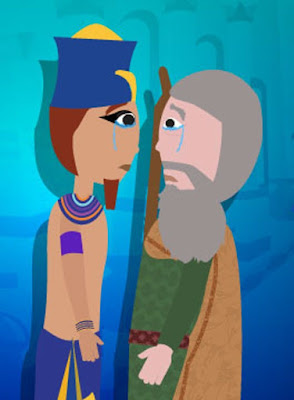The Gospel of the Old Testament
The book of Exodus has much to say to us about who God is and how He deals with His people.
There are various example of this that we can find from the life of Moses and how God deals with Him, but some of the greatest themes are seen in how God has dealt with a people that were, in many cases, prone to disobedience and complaints.
Firstly, we can see this taking place in the intervention in Moses’s life and by extension, God is intervening in the lives of the people of His promises. Moses spends years away from Egypt, fleeing not only the Egyptians that he would have been raised around, but away from the people that are his kindred.
Even if we run from the people of God, we can never outrun the plans of God.
God miraculously intervenes in the life of Moses through a burning bush (Exodus 3:2) and uses Moses through similar miraculous means to intervene in the lives of the Israelites. God freed the children of Israel from their bondage in Egypt as He has freed Moses from his bondage of fear and inadequate in the desert.
Not only do we see God remembering and intervening, but secondly, we see Him proclaiming Himself to His people and to the heathen.
Because of the hardness of Pharaoh’s hard, God proclaims His power through plagues. We do notice that God first sends His words, through His servant, but He backs them up by His works.
We see God making Himself known to the heathen in each of the plagues. Hamilton points out this when he references the reasons for the plagues were not to leave a bloodied and battered Egypt but that, “The divine purpose is that Pharaoh and his people…will indeed acquire knowledge of the true God.” (Hamilton p. 159)
It is key to see that God is working even in the hardness of pharaoh’s heart to bring forth His purpose and plan. Pharaoh first hardened his heart toward of the Lord (Exodus 7:13-14) but God is still not deterred by Pharaoh, nor will Pharaoh thwart His plan. On the contrary, “God uses the hardening redemptively.” (Hamilton p. 167)
Thirdly, we can find God protecting His people. God had His protection on His people from the very beginning of the account of Exodus. Moses was protected from death, and even raised in the household of Pharaoh. (Exodus 2:1-10)
God protects His people from the first nine plagues, in not allowing them to come to the land of Goshen (Exodus 9:26), which we can see this vividly in the account of Passover.
The protection is see as it is provided by God in Numbers 12:23, when says that He “will pass through to strike the Egyptians, and when he sees the blood on the lintel and on the two doorposts, the Lord will pass over the door and will not allow the destroyer to enter your houses to strike you.”
To “pass over,” in this verse, means “to protect,” or as the NEB suggests in a footnote, “stand guard over.”
The Lord himself will block the entry of the destroyer. He will be a protective covering for his people. Their security is in his presence.” (Hamilton p.168)
In each of these ways get of view of who God is in His remembrance, and salvation of His people. We as the people of God can find comfort in this fact.
Our God isn’t just a God who will never forget us, but He is a God that will always keep His promises and make steps to save us from our enemies and when needed, save us from ourselves.





Comments
Post a Comment